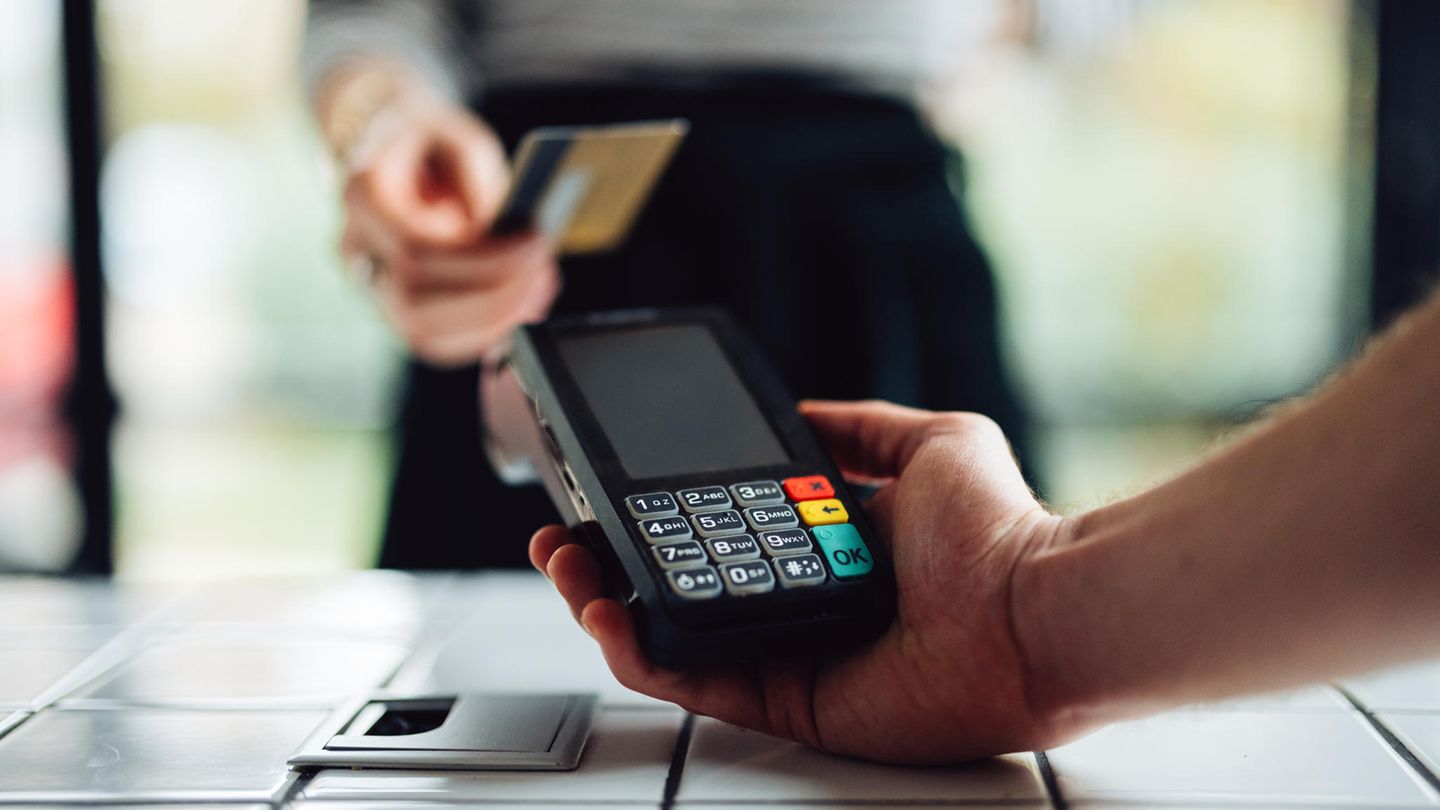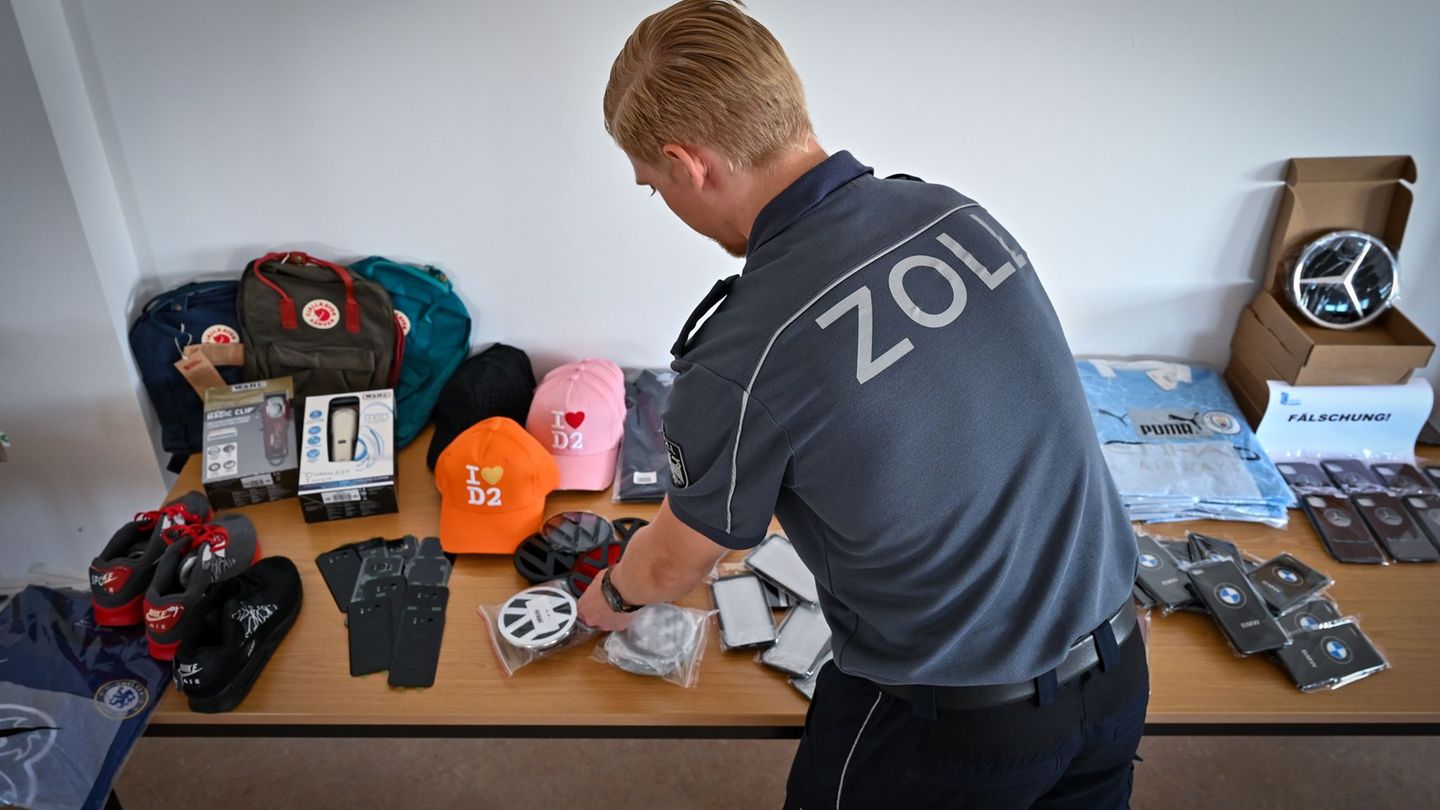Opinion
The European Union wants to drastically restrict cash transactions. Our author can hardly wait – and will probably never understand the German love of cash.
Why only coins and bills? As a child of the digital age, I’ve been asking myself that for a long time. And especially since I returned to Germany a few weeks ago from a six-month stay in Great Britain.
Britain’s Brexit chaos and economic decline may have left the island looking backward for some time. When it comes to payment transactions, the British are miles ahead of us.
That became clear to me even before the first tube ride in London. The busker, who was playing Spanish guitar music in the subway tunnel, had placed a card reader in front of him on the pavement next to a hat. Almost everyone who donated to his serenade did so with a quick touch of their plastic card. At the church where I volunteered, the collection didn’t jingle in the collection bag. Instead, the parishioners routinely sent their charity by beeping and paying plastic. Even when I wanted to buy an old version of the Animal Farm book at the flea market, I had no choice but to pay the two pounds with the bank card. Only at one station in several months in London could I not avoid paying cash: at the launderette. And that immediately felt not only unfamiliar, but completely unnecessary. I’d gotten out of the habit of handling cash, without realizing it, faster than I could get into the habit of looking right first when crossing the street.
When I told my friend Harry that you wouldn’t get far in Germany without euro coins in your wallet, he had to laugh. “You really only need cash here to buy drugs or evade taxes,” he said. “I can’t remember the last time I paid cash for something. Must have been years.” Then Harry talked about his grandmother. She lives in a small town in the Welsh countryside where Harry grew up. And actually be “very upset” because the local bank branch closed some time ago and she now always has to drive 40 minutes to the nearest town to withdraw cash. Cash, Harry wanted to say with the story, that’s a thing of the past.
7000 euros upper limit for cash payments
Then recently I woke up rudely in this very past. It was shortly after landing at home when I became hungry. What could be closer in Berlin than the nearest kebab shop, I thought. With everything and hot, it was quickly ordered, the steaming cake was already within reach when I stretched my bank card over the counter – and after a brief incredulous look the owner directed me to the yellow ATM on the other side of the street. Withdrawing ten euros cost me five euros there.
It’s been going on since then. I often had to find out at the cash register in the late night shop that I couldn’t pay by card here and had to run back to the apartment to get coins. Once when a woman wanted to buy cigarettes in the Späti, she did not reach the minimum amount for the plastic money payment. When it became clear that she would have had to buy up half the range of fussy goods in order to pay by card, she left without buying anything: I bumped into business people everywhere who consistently refused card transactions. But I notice: It’s easier for me to get back into the left-right-left mode when crossing the street than to get used to constantly moving cash again.
But now hope beckons: After the EU Parliament has already decreed progress for the boiler room, the MPs in Brussels are now buttoning their wallets. Cash transactions are to be radically restricted across the EU. In a preliminary agreement, an upper limit of 7,000 euros was quickly agreed. The final decision should be made at the end of the month.
That’s exactly the right signal. Even if for the time being I will probably only rarely be in the embarrassment of moving three or even four-digit amounts. In many European countries, the new cash rule will hardly go unnoticed when it comes. 18 out of 27 member states have long since introduced upper limits for paying with cash. Incidentally, the lowest EUR 500 applies in Greece, the highest EUR 15,000 in Croatia.
The German love of cash
Of course there will be a big outcry in Germany. There will again be a lot to read about the famous “Germans’ love of cash”. “So what?” my friend Harry will probably say when I tell him about the excitement to come.
Because: Cash is not only terribly impractical. At least since the Vice President of the European Parliament, Eva Kaili, and her suitcase were blown up, it must be clear to the last person that anyone who pays in cash often has something to hide.
In addition, no one can really explain where this alleged “love of cash” comes from. Even the Ifo Institute wrote to me when I asked that it “cannot be answered with any certainty” as to why the Germans are so keen on carrying their wealth in coins and notes with them. Could it be, I’ve been wondering ever since, that this alleged love story is just an irrational myth? It is definitely an appendix of money history.
Incidentally, even we Germans were a bit ahead when it came to cash and coal. When Corona raged and many were afraid of getting infected at the supermarket checkout, part of the cash republic suddenly ran on plastic. The result: In 2021, 17 percent fewer cash payments were registered in Germany than in 2017, says the Bundesbank. Go then!
Kebab with spicy and map? I’m looking forward to it.
And before anyone thinks I’m heartless and antisocial because I don’t even think about the 500,000 people in Germany who don’t have a bank account and the children with their coin-operated piggy banks: But couldn’t they just get through life digitally, how for example the street musician in London?
Source: Stern




